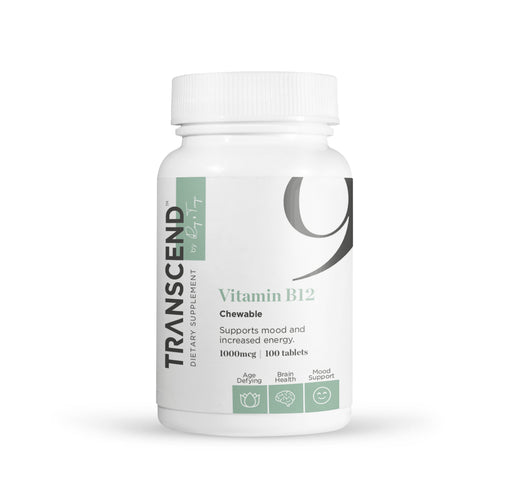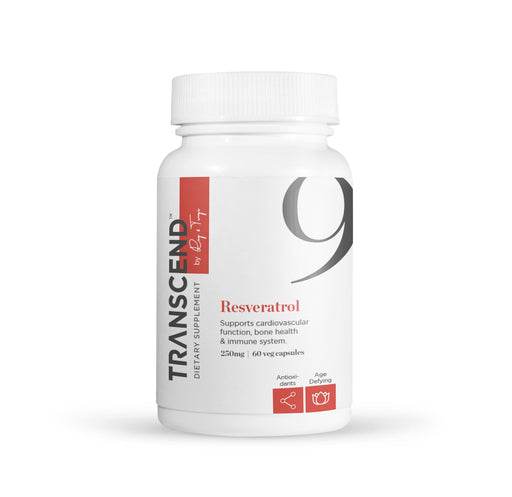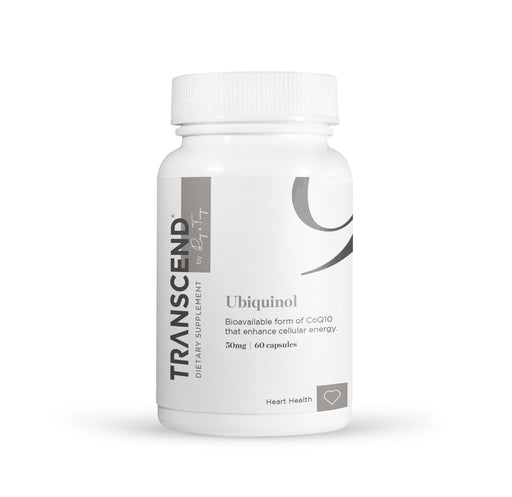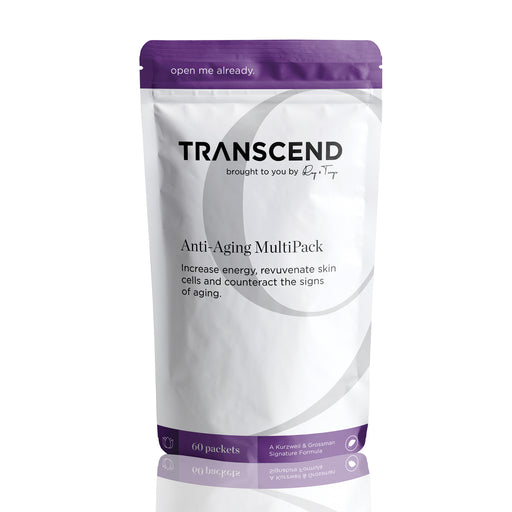Are Vitamins Beneficial?
Reporters sometimes write slanted articles that mislead the public on the uses and potential benefits of vitamins and nutritional supplements. Numerous studies indicate the nutritional causes of disease and the many ways in which supplements support wellness, but slanted reports often overlook the bigger picture. Vitamins should not be considered a "quick fix." However, taken in conjunction with a healthy lifestyle, many supplements have been shown to have properties that help ward off disease. To ignore the valid implications of years and volumes of detailed research is to ignore the true complexities of human health.
Terry Comments on Multivitamin Studies
December 30, 2013
Along the same lines of the media not disseminating studies that show problems with conventional medicine, please see: http://www.upi.com/blog/2013/12/27/No-surgery-produced-the-same-results-as-knee-surgery-according-to-Finnish-study/9771388174500/
This was an amazing study where patients either underwent “real” surgery to repair/remove knee cartilage or sham surgery where they had the same incisions and “pretend” operative movements (as they were awake). Study was done in Finland as I doubt it could have been approved in the US.
Placebo patients reported a greater degree of satisfaction than “real” patients.
This surgery is done half a million times a year in the US. At, say, $25,000 per procedure (probably too low), this is $12.5 billion of surgery – with all the pain, risk of infection, etc. associated with surgery – shown to be no more effective than placebo.
Even worse, in my experience, patients who have meniscal cartilage removed from their knees are MUCH more likely to wear down the cartilage covering the ends of their bones, resulting in often severe arthritis and need for joint replacement surgery years down the line.
I have seen no mention of this study in any media.
If a complementary treatment, say acupuncture, were shown not to be more helpful than placebo, the odds are that it would receive widespread press coverage.
By cherry picking which studies they publish, the illusion created is that conventional treatments work, while alternative therapies (including supplements) do not.
Here is a study coming out of the large and well respected Women’s Health Initiative showing positive results for supplements and breast cancer. Unfortunately, the media has largely ignored it. Abstract: http://link.springer.com/article/10.1007/s10549-013-2712-x
Ask Ray: Supplement Study in WSJ is Misleading
December, 2013
The study quoted by The Wall Street Journal is misleading. It only looked at low potency (and low quality) supplement combinations and set a very high bar requiring dramatic reductions in cardiovascular disease and other conditions.
There is no way that a routine commercial, low potency, low quality vitamin combination is going to meet that bar.
In terms of contraindicated substances, there are potentially harmful ingredients in some combinations. Iron is generally harmful for men in terms of promoting oxidation.
Vitamin A is potentially harmful, people should take its precursor Beta Carotene. What goes for “Vitamin E” in most commercial formulations is not vitamin E at all but Alpha Tocopherol, which is only one of the eight factions of vitamin E. Alpha Tocopherol suppresses Gamma Tocopherol, which is the faction found naturally in food and the most important type.
A better recommendation is to take “mixed tocopherols,” which is what I take..
For more: http://www.kurzweilai.net/ask-ray-supplement-study-in-the-wall-street-journal-is-misleading
Not So Fast… Calcium Report is Flawed
August, 2010
A recent report cast doubt on calcium supplements. Ray & Terry do not recommend aggressive calcium supplementation. However, calcium is essential for bone health, particularly in women as they age, that it is important to realize there are shortcomings in this recent report. The study did not separate men and women, for example, who have very different osteoporosis and heart disease risk rates.
Men have a higher instance of heart attacks, but women have a higher instance of osteoporosis. Ray & Terry offer gender-specific calcium recommendations with this in mind.
Before avoiding all calcium supplements, we advise considering personal circumstances and deciding what's best for the individual. Women 50-70 with a family history of osteoporosis, who do not eat any dairy, for example, should consider calcium supplements.
Scott, Sophie. "Calcium supplement heart attack study 'absurd'." ABC News. Aug 3, 2010. http://www.abc.net.au/news/stories/2010/08/03/2972399.htm
Antioxidant Supplements Won't Hurt Us, But Misinformation Might By James J. Gormley May 3rd, 2008
Lately we've heard quite a lot about how nutritional supplements, including antioxidant vitamins, are regarded by a few scientists as a great danger—or so we might gather from recent media coverage that has treated us to such fear-mongering headlines as "Potential for harm in dietary supplements"1, "Vitamin pills may do more harm than good" 2 and "Why some popular pills might kill you" 3.
The scientific review to which these sensationalistic stories refer was a meta-analysis in the Cochrane Database of Systematic Reviews 4. A meta-analysis is supposed to be careful re-review of many studies whose results are pooled together.
The Cochrane Database meta-analysis, authored by Goran Bjelakovic and others, is an updated version of a review that originally appeared in the Journal of the American Medical Association 5 that had been roundly criticized by scientists.
While 67 clinical trials were included in this new review, most people are not aware that 748 trials were excluded for a number of reasons, including 405 studies that failed to show anybody died 6.
One could persuasively argue that the authors of this review only included studies which could be molded to support the viewpoint that antioxidant vitamins are dangerous.
Dr. Bjelakovic has made no bones about his skeptical attitude towards dietary supplements. In 2007, he co-authored an article in the Journal of the National Cancer Institute entitled: "Surviving Antioxidant Supplements" 7 and has posted an article on a newspaper syndicate entitled "Do antioxidant supplements work?" 8.
While meta-analyses, when properly conducted, can be an insightful tool; when ill used they are subject to bias by those who hold pre-determined conclusions and are seeking a way to force studies into them.
A wide body of scientific evidence has established that taking antioxidant supplements—including vitamins C and E, beta carotene, selenium and zinc—can help reduce the risk of chronic disease.
That being said, we know that antioxidant supplements (and supplements, in general) are not magic bullets, but they can be an important complement to a healthful diet.
If we twist science to create worldwide distrust in healthful dietary supplements, then we are truly harming consumers.
-
Brody J. Potential for harm in dietary supplements. New York Times April 8th, 2008.
-
Vitamin pills may do more harm than good. Scotsman UK. http://news.scotsman.com
-
Why some popular pills might kill you. The Herald UK. http://www.theherald.co.uk
-
G. Bjelakovic, D. Nikolova, L.L. Gluud, R.G. Simonetti, C. Gluud. Antioxidant supplements for prevention of mortality in healthy participants and patients with various diseases. Cochrane Database Syst Rev. 2008 Apr 16;(2):CD007176.
-
G. Bjelakovic, D. Nikolova, L.L. Gluud, R.G. Simonetti, C. Gluud. Mortality in randomized trials of antioxidant supplements for primary and secondary prevention: systematic review and meta-analysis. JAMA 2007 Feb 28;297(8):842-57.
-
Daniells S. The dangers of selective science. Nutraingredients.com April 12, 2008 [online news portal] http://www.nutraingredients.com
-
Bjelakovic G and Gluud C. Surviving antioxidant supplements [editorial]. JNCI Journal of the National Cancer Institute 99(10):742-743, 2007.
-
Bjelakovic G. Do antioxidant supplements work? Project Syndicate [online]. http://www.project-syndicate.org
Response to the Cochrane Database of Systematic Reviews 2008, Issue 2: "Antioxidant supplements for prevention of mortality in healthy participants and patients with various diseases"
Our criticism of this report is similar to our criticism of a number of similar so-called studies. In each case, these reports were not actually studies, rather, they were meta analyses, which is to say, an analysis of other studies, which had previously been performed.
A meta analysis can provide valid data, but only if it is not subject to underlying bias. It appears there was an extreme degree of bias associated with this analysis. In particular, I would like to point out that the authors of the study chose to ignore 91% of available studies on the effects of vitamins on mortality. One reason for exclusion was because a study reported NO MORTALITY! By excluding all studies, which showed that vitamin supplementation had no effect on mortality, the authors immediately introduced an extreme degree of bias right from the beginning.
There was also no consistency in either the doses or the dosing schedule of the supplements examined in this study. For example, they looked at studies of vitamin A that varied from 1333 units all the way up to 200,000 units per day. This means is some these studies included doses too low to provide a meaningful effect or were so high as to almost guarantee toxicity. One of the studies included merely 1 individual.
Two thirds of the studies were performed on sick people, yet, the conclusions were that vitamins should not be taken by healthy people because they increase mortality
The study authors also made use of specific statistical techniques designed to produce their desired conclusions -namely, that vitamin supplements increased mortality. They were able to do this by combining studies that had widely varying doses of vitamins, or single or multiple vitamins and supplements and widely disparate numbers of test subjects. By utilizing what is called the "fixed effect" method of statistical analysis, they were able to demonstrate an increased mortality of 4 percent. The "random effect" model of statistical analysis would have been more relevant for study of this nature, but was not used.
We do not feel this study represented a significant advance in our knowledge about the effect of supplementation on mortality.
Response to the JAMA Report: "Mortality in Randomized Trials of Antioxidant Supplements for Primary and Secondary Prevention: Systematic Review and Meta-analysis"
There are many conflicting reports on health products and their components. Based on extensive scientific research, Ray Kurzweil and Terry Grossman, M.D. continue to advocate antioxidants as an integral part of supplementation and disease prevention.
We believe that the conclusions drawn by the Journal of the American Medical Association report are misleading. The report was based on a meta-analysis of over five dozen studies, which had serious flaws:
- Many of the studies cited lacked controls.
- Studies varied widely in dosage.
- Studies were of variable length – one lasted ONE DAY!
- Many of the study participants were already sick and thus the studies are misleading with regard to disease prevention.
- Other lifestyle factors – diet, exercise, and smoking were not considered.
- Many of the studies used very low doses of these supplements.
As is pointed out in Fantastic Voyage, dosages need to be in therapeutic ranges (which are usually much higher than the out-of-date RDA's) in order for these nutrients to have a measurable effect. Among the 2,000 scientific citations in Fantastic Voyage are many that support the use of these and other nutritional supplements.
For more reading on the merits of vitamins and supplements:
- Summary and Abstract as published in the Cochrane Database of Systematic Reviews 2008, Issue 2: "Antioxidant supplements for prevention of mortality in healthy participants and patients with various diseases":
http://www.cochrane.org/reviews/en/ab007176.html
- Response by the Health Food Manufacturers Association, UK: HFMA Statement in Response to the Cochrane Review on Antioxidant Supplementation: http://www.responsesource.com/releases/rel_display.php?relid=38264&hilite=
- Rebuttal to the Recent Media Attack on Antioxidants—Life Extension Magazine:
http://www.lef.org/featured-articles/consumer_alert_020307.htm
- Meta-analysis on Antioxidants Provides Muddled Conclusions—Body of Scientific Research Shows Antioxidants Provide Benefits for Maintaining Good Health—Statement by the Council for Responsible Nutrition: http://www.crnusa.org/PR07_JAMA_antioxidant_metaanalysis_022707.html
- Bad Medicine, Bad Reportage, or Both?—Alternative Medicine Review editorial by Kathleen Head, ND: http://www.thorne.com/altmedrev/.fulltext/11/2/83.pdf
- The WSJ's Fictitious "Case Against Vitamins"—Article by health and nutrition columnist Jean Carper: http://www.stopagingnow.com/pages/specialreport/wsj
- Is Vitamin E still safe?—Ray Kurzweil & Terry Grossman, M.D.:
http://fantastic-voyage.net/ReaderQandA.htm#VitE
- Nutritionist Says Wall Street Journal Wrong on Vitamins—Posted by PR Newswire, 4/13/2006: http://www.enzymeexperts.com/world-enzymes/
nutritionist-says-wall-street-journal-wrong-on-vitamins.html






Leave a comment